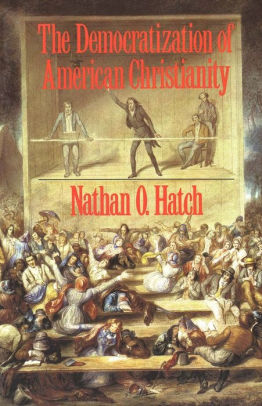
A few years ago, while driving on an Interstate in the Southeast, I spotted a billboard that announced: “A church for people who don’t like church.” This description prompted me to imagine exactly what it was that the target market for this invitation might find objectionable about “church” as conventionally experienced.
It is unlikely that the congregation in question was ditching all references to God or to spiritual renewal (although who God is and what constitutes spiritual renewal might well be reconfigured in this setting). And while there are “churches” that eschew making any significant moral demands on their constituents, I don’t know that this was in the minds of the billboard’s presenters. However, since the leaders of this religious enterprise seem so eager not to offend potential clients, I also doubt that vigorous and sustained exhortation will be on the agenda come Sunday.
Driving further down the road, I wondered whether the NFL could dream up some sort of football for people who don’t like football. Might marketers at NASCAR re-tool stock-car racing for people who don’t like stock-car racing? Could the imagineers at Disney build a theme park for people who don’t like theme parks? In such scenarios (and countless others), what would need to be eliminated in order to attract the disaffected? And would the event still retain its identity when stripped of allegedly accidental characteristics?
I’m guessing that what people typically dislike about “church” (not, interestingly, “the Church”) includes ritual, tradition, reverent silence, hierarchy, mystery, and doctrinal orthodoxy rooted in historic and learned debates. These are the things that Americans have typically and dramatically disliked about “church” for a long time. The history of that dislike explains a great deal about American religion and American culture more generally. That history had its defining moment in the early decades of the nineteenth century, a heady season of revolutionary enthusiasm for “liberty,” understood in terms of the absolute competence of individuals and of the shucking off of old forms of authority.
To my knowledge, there is no better account of that history than Nathan O. Hatch’s The Democratization of American Christianity. One cannot hope to make sense of the various twists and shifts and emergings of contemporary American religion without examining the way the Jeffersonian and Jacksonian visions of human flourishing stamped American Christianity with an individualistic character that fundamentally reshaped the American Church and its message. Hatch brilliantly traces the personalities and movements that advanced the notion that — in the words of one popular preacher of the time — “religion is a matter between God and individuals.” No creeds. No ecumenical councils. No authoritative community. No educated clergy. The unchurch: church for people who don’t like church.
In the first several decades of the young republic’s life, many religious Americans came to believe that “the Spirit of ’76” was Pentecost 2.0, an event propelling the Church into a new level of spiritual power. Hatch uncovers how the radical egalitarianism of the late eighteenth century — a “passion for equality” stemming from a novel confidence in individual reason and common sense that had been advanced by the pioneers of the Enlightenment — came to reshape religious institutions and redefine the typical understanding of religious experience. As Hatch explains, “the Revolution dramatically expanded the circle of people who considered themselves capable of thinking for themselves about issues of freedom, equality, sovereignty, and representation. Respect for authority, tradition, station, and education eroded. Ordinary people moved toward these new horizons aided by a powerful new vocabulary, a rhetoric of liberty that would not have occurred to them were it not for the Revolution.” This vocabulary was applied without dilution to the life of God’s people. As a result, “The correct solution to any important problem, political, legal, or religious, would have to appear to be the people’s choice.”
Hatch describes how “the people” dismissed the alleged lessons of history and tradition and “refused to defer to learned theologians and traditional orthodoxies.” They followed Kant’s path to Enlightenment by insisting on judging for themselves “rather than depending upon the mediations of an educated elite.” Egalitarianism was allied with strong anti-intellectual biases.
One of the subplots in Hatch’s story is how the untethering of the Church’s life from a tradition of thoughtful reflection produced “a society in which grasping entrepreneurs could erect new forms of tyranny in religious, political, and economic institutions.” The rejection of existing forms of authority did not magically transform the world into a place with no authorities; the repudiation of the Church’s tradition simply meant embracing a less venerable legacy of more recently developed (and more dubious) ways of thinking, often with disastrous results. “Attempting to erase the difference between leaders and followers,” Hatch concludes, “Americans opened the door to religious demagogues.”
The Democratization of American Christianity is a cautionary tale about how the Church surrenders its vocation when it allies itself with dubious cultural trends. Since we are going through another season of enthusiasm about the power of populism — much of it inflected with anti-intellectual confidence — it is a particularly good time for Christians to reflect on the cultural captivity experienced in the life of the Church by embracing these most American of sentiments.
This essay first appeared in the “Contours of Culture” column (Touchstone, July/August 2010)